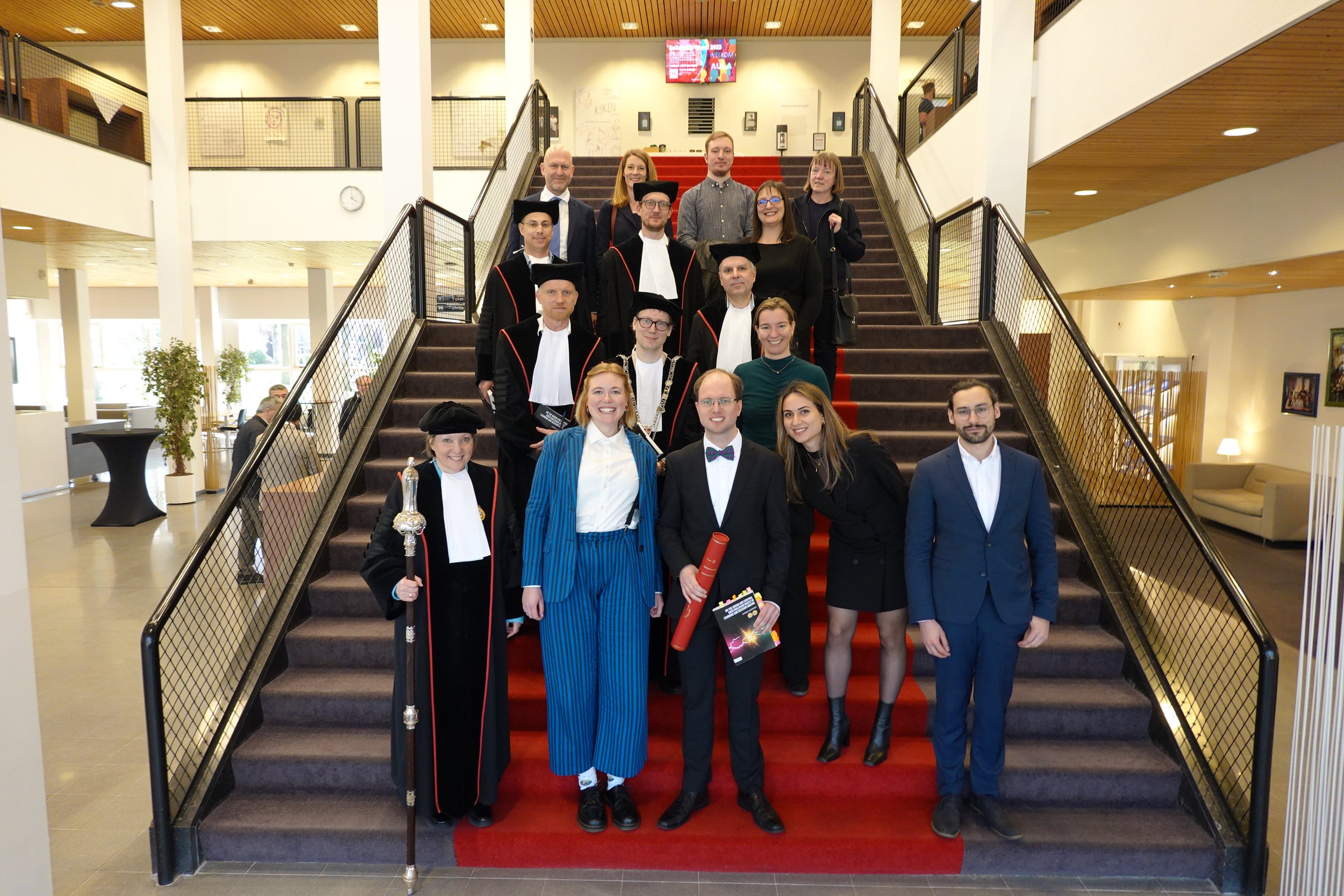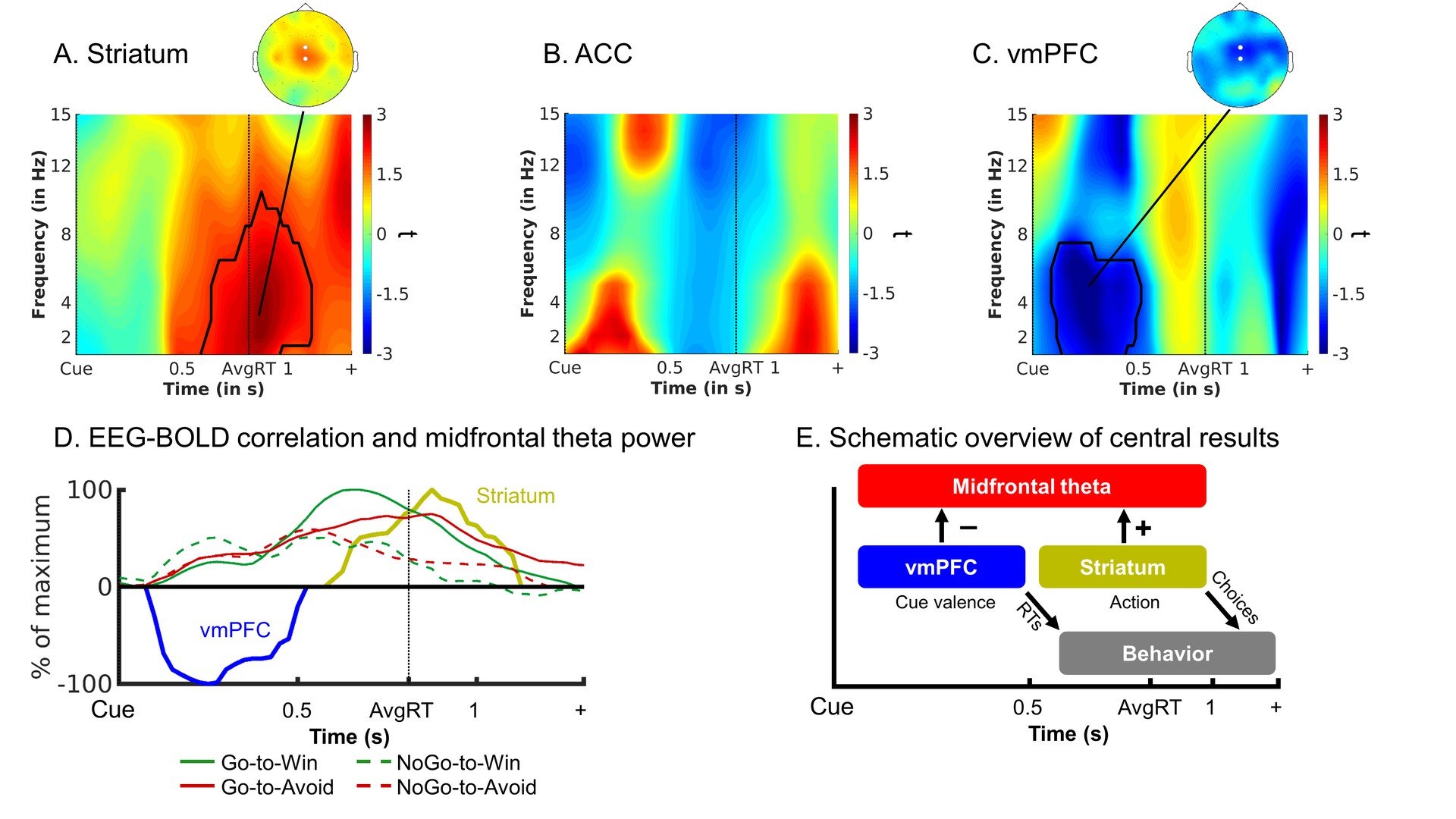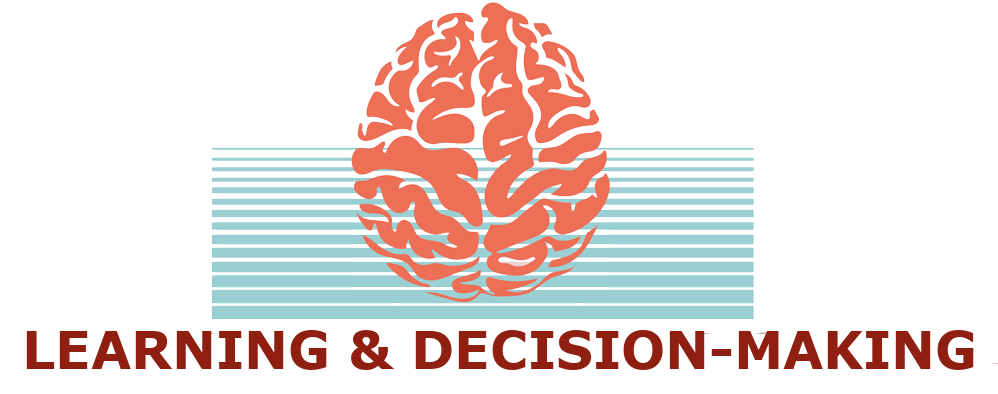Lab News

Our study “Effect of LSD on reinforcement learning in humans” in PsyPost
Exciting news! Our groundbreaking work conducted by Kanen et al. (2022) has garnered recognition in the realm of science communication by PsyPost.
Recently, our research on the effects of LSD on learning and exploratory behavior in humans was featured on the highly regarded blog PsyPost. PsyPost is an independent science news website dedicated to reporting the latest research on human behaviour, cognition, and society. The article delves into our placebo-controlled study, revealing that LSD can enhance both learning and exploratory behavior. This breakthrough not only expands our understanding of psychedelic substances but also highlights their potential for positive cognitive impacts.

New paper by Johannes Algermissen in Journal of Experimental Psychology
Our study titled “Goal-directed recruitment of Pavlovian biases through selective visual attention.” is now posted online in Journal of experimental psychology. Here, we examined prospective outcomes bias behavior in a "Pavlovian" manner, namely reward prospect invigorates action, while punishment prospect suppresses it.
Theories have posited Pavlovian biases as global action "priors" in unfamiliar or uncontrollable environments. However, this account fails to explain the strength of these biases-causing frequent action slips-even in well-known environments. We propose that Pavlovian control is additionally useful if flexibly recruited by instrumental control. Specifically, instrumental action plans might shape selective attention to reward/punishment information and thus the input to Pavlovian control.
In two eye-tracking samples (N = 35/64), we observed that Go/NoGo action plans influenced when and for how long participants attended to reward/punishment information, which in turn biased their responses in a Pavlovian manner. Participants with stronger attentional effects showed higher performance. Thus, humans appear to align Pavlovian control with their instrumental action plans, extending its role beyond action defaults to a powerful tool ensuring robust action execution

Congrats to Dr. Johannes Algermissen!
On Monday 3rd of April, Johannes Algermissen elegantly defended his thesis "On the origin and control over pavlovian biases in learning and decision making” and received his doctoral degree cum laude. The lab would like to congratulate Johannes on this great achievement! Johannes now works as postdoc working with Dr. Miriam Klein-Flügge at Oxford University.

Fun lab activities in LDM lab
As humans, we learn and make decisions best when we are actively engaged and having fun. Fortunately, Hanneke understands this well. In our lab, we incorporate fun and engaging lab activities that help us to learn and connect with each other.

New paper by Benjamin Kop on bioRxiv
Our study titled “Auditory confounds can drive online effects of transcranial ultrasonic stimulation in humans” is now published online on bioRxiv. Across four experiments, one preregistered, at three independent institutions, we employed tightly matched control conditions to we disentangle direct neuromodulatory effects of transcranial ultrasonic stimulation (TUS) from those driven by the salient auditory confound in a combined transcranial ultrasonic and magnetic stimulation paradigm.
We replicated motor cortical inhibition following TUS, but showed through both controls and manipulation of stimulation intensity, duration, and auditory masking conditions that this inhibition was driven by peripheral auditory stimulation rather than direct neuromodulation.
This study highlights the substantial impact of the auditory confound, invites a reevaluation of prior findings, and calls for appropriate control conditions in future TUS work. Only when direct effects are disentangled from those driven by peripheral confounds can TUS fully realize its potential for neuroscientific research and clinical applications.
An official preprint of the paper can be found here and a pdf version in our publications section. And if you want to know more, please get in touch with Benjamin or Hanneke!

New paper by Vanessa Scholz in Neuropsychopharmacology
Our study titled “Cortical dopamine reduces the impact of motivational biases governing automated behaviour” is now published online in the journal Neuropsychopharmacology. Using a COMT inhibitor, tolcapone, known to selectively enhance frontal dopamine, we examined whether selectively enhancing frontal dopamine would: a) lead to an adaptive suppression of Pavlovian biases or b) result in a global reduction of Pavlovian biases in a valenced Go/NoGo learning task. Our results indicated a global, unspecific decrease of Pavlovian biases, with performance increases on trials required to overcome the bias, but worse performance on trials for which the bias is known to be helpful. These findings highlight the role of dopamine in regulating motivational processes involved in top-down control of automated behavior, while also opening up exciting new avenues for studying the underlying mechanisms driving symptoms of addiction or OCD, disorders often associated with overhabitualized behaviour.
A preview of the paper can be found here and if you want to know more, please get in touch with Vanessa or Hanneke!

Congratulations Dr. Mojtaba!
Congratulations Dr. Mojtaba! Mojtaba successfully was awarded PhD in "Artificial Intelligent and Robotics" entitled "Modelling of Inter-Individual Variability in Computational Mechanisms of Reversal Learning Task", from the University of Teheran, with the highest distinction!

New paper by Johannes Algermissen in Cerebral Cortex
Our study titled “Striatal BOLD and Midfrontal Theta Power Express Motivation for Action” is now published online in the Cerebral Cortex journal. In this study, we examined the mechanisms behind the effect of motivational biases on action selection using simultaneous EEG-fMRI during a Go/NoGo learning task. We found that striatal BOLD selection of active Go responses and correlated with theta power around response time. Within trials, theta power ramped in the fashion of an evidence accumulation signal for the value of making a “Go” response, capturing the faster responding to reward cues. Our findings reveal a dual nature of mid-frontal theta power, with early components reflecting the vmPFC contribution to motivational biases, and late components reflecting their striatal translation into behavior. The paper can be found here.

New paper by Annelies van Nuland in Brain
Our study entitled “Effects of dopamine on reinforcement learning in Parkinson’s disease depend on motor phenotype” is now published in the Brain journal. In this study, we investigated whether interindividual heterogeneity in tremor symptoms could account for the puzzlingly large variability in the effects of dopaminergic medication on reinforcement learning. We found that in non-tremor patients, dopaminergic medication improved reward-based choice, replicating previous studies, whereas dopaminergic medication improved learning from punishment in tremor-dominant patients. The paper can be downloaded here.

New paper in PLOS Biology
Our study titled “Modeling flexible behavior in childhood to adulthood shows age-dependent learning mechanisms and less optimal learning in autism in each age group” is now published online in the PLOS Biology journal. In this study, we investigated how flexible behavior changes developmentally in ASD. The results show that autistic individuals showed on average more perseveration and less feedback sensitivity than TD individuals, and that older age groups showed more feedback sensitivity than younger age groups. Furthermore, dominant learning mechanisms underpinning flexible behavior where found to differ across developmental stages and reduced flexible behavior in ASD was driven by less optimal learning on average within each age group. In autistic children, perseverative errors were positively related to anxiety symptoms, and in autistic adults, perseveration (indexed by both task errors and model parameter estimates) was positively related to restricted, repetitive behaviors. The paper can be found here.

New paper by Jennifer Swart in PLOS Biology
Our study titled “Frontal network dynamics reflect neurocomputational mechanisms for reducing maladaptive biases in motivated action” is now published online in the PLOS Biology journal. In this study, we investigated the neurocomputational mechanisms underlying overcoming maladaptive motivational influences through frontal cognitive control. We found that midfrontal theta-band activity covaried with the level of Pavlovian conflict and was associated with reduced Pavlovian biases rather than reduced instrumental learning biases. Motor and lateral prefrontal regions synchronized to the midfrontal cortex, and these network dynamics predicted the reduction of Pavlovian biases over and above local, midfrontal theta activity. The paper is open access and can be downloaded here.

New paper in the Journal of Cognitive Neuroscience
Our study titled “Pavlovian Control of Escape and Avoidance ” is now published online in the Journal of Cognitive Neuroscience. In this study, we aimed at establishing a behavioral and computational framework to examine aversive Pavlovian responses (activation vs. inhibition) depending on the proximity of an aversive state (escape vs. avoidance). The results for choice and reaction times suggest that escape is associated with a bias for vigorous action, whereas avoidance is associated with behavioral inhibition. The paper can be found here.

Donders Wonders: How to survive the Winter Blues
Check out this blogpost on Donders Wonders by Annelies van Nuland to find out how to make it through the cold and dark Winter months!
